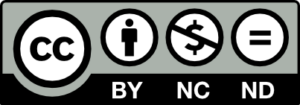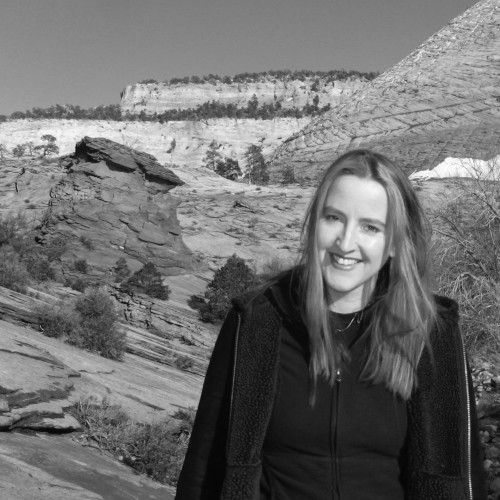As a writer whose novels of suspense often take place in wild spaces around North America, it’s my job to thrill readers while showing them the beauty of nature and importance of biodiversity and preserving habitat and imperiled species.
As a researcher collecting wildlife data to help with conservation in many of those same wild places, I’m terrified about the changes and systemic destruction coming out of the Trump administration.

Today we face an unprecedented attack on our public lands and environmental protections, and we’re seeing the steps we’d taken toward tackling the climate crisis stripped away. Everyone I talk with expresses fear about what these changes will bring.
Yet many of us still feel so overwhelmed by the steady stream of attacks that we don’t know how to take meaningful action and find ourselves frozen in inaction. We wonder how we can make a difference. In anger, disillusionment, and frustration we watch our elected officials either going along with the destruction or standing by mutely like statues, ineffective against the onslaught.
But we must understand what’s at stake. We must understand what we could lose if the actions of this administration go unchecked.
Parks and Wild Places Under Attack
The onslaught has been constant since the inauguration. The National Park Service was forced to lay off 1,000 probationary employees in February. Another 700 quit after a pressuring, threatening email from Elon Musk’s DOGE claiming they’d be paid through the summer.
DOGE took advantage of the term “probationary” to imply these employees had received poor performance reviews or were “low efficiency.” But DOGE doesn’t seem to understand — or respect — that “probationary” simply means they were new to those positions. Often this doesn’t mean the employees were new to the agency, either, but rather new to that specific position at the agency. Many of the people who were fired had been at their agency for more than 10 years, recently promoted to a new position.
As DOGE removes or forces out these employees, we’re losing valuable expertise. And for the ones who were new to the agency, many were recent graduates with up-to-date knowledge on methodology and technology, so we’re losing that expertise, as well.
View this post on Instagram
This reduction in personnel means that places like Arches National Park had to shut down access to the beloved and popular Fiery Furnace hike due to staffing shortages. Sequoia and Kings Canyon had to suspend all ranger-led programs like nature walks and talks. Many people only visit a park once in their lives, and with rangers unable to reach visitors, vital opportunities to teach people about conservation, the importance of biodiversity, and the value and interconnectedness of nature are being lost. People who might have been inspired to take action for an imperiled species, say, or an environmental issue might leave the park not even knowing that such a problem exists.
During the first Trump presidency, the United States experienced the longest government shutdown in its history. Anyone visiting national parks during those weeks in the winter of 2018-2019 may remember overflowing bathrooms, vandalism, limited or nonexistent rescue and emergency services, closed visitor centers, and other obstacles. Some parks had to shut down entirely. We could very well be headed for these conditions as a norm, if not an even worse situation, where parks could be permanently closed or damaged beyond the ability for tiny, reduced staffs to fix.
And it’s not just the federal workers keeping our parks safe who are getting the axe. Trump has ordered 280 million acres of our national forests to be cut down, with orders to circumvent the Endangered Species Act by using unspecified emergency powers to ignore protections. This will not only eliminate habitat for imperiled species like wolverines, grizzly bears, spotted owls, salmon, and many others, but harm people as well. Intensive deforestation, for example, can pollute the drinking water of local communities.
View this post on Instagram
Congress had appropriated more than $2 billion as part of the 2022 Inflation Reduction Act for wildfire prevention and forest management, but the Trump administration’s funding freeze halted that work. With the additional layoffs of 3,400 Forest Service staff, that vital work has been severely curtailed. This affects ongoing forest-maintenance activities like prescribed burns, which must be done seasonally, at times of the year when fire spread threat is low; that window has now closed in many places.
This onslaught on our parks and forests is made worse by the administration’s desire to open more public land and waters up to mining and the fossil fuel industry, including greatly weakening a rule that protects migratory birds from unintentional killing.
Climate and Other Environmental Risks
And this upswing in the production of fossil fuels puts us in an even worse situation. The climate crisis is the greatest existential threat we face today. We’re already seeing devastating wildfires, hurricanes of unprecedented strength, disastrous flooding, swarms of tornados, sea-level rise, drought, and more. The administration wants to make all of this worse by flinging our country into even more fossil fuel production, despite the fact that we already produce more oil than any other country on the planet and are the biggest exporter of natural gas.
Additional efforts we’ve made toward combating the climate crisis are being ripped away. Trump left the Paris Climate Accord. His administration has frozen funds appropriated for clean-energy projects. It has halted leasing for wind-energy projects on public lands and in federal waters and even considered halting renewable-energy projects on private land. Trump told Congress to get rid of tax credits and subsidies for electric vehicles. Programs designed to research and combat climate change affecting marginalized communities have ended, and the very vocabulary addressing climate change has been expunged from many federal websites.
The administration even wants to interfere with state-run programs, such as California’s high speed rail project, its mandate to end the sale of gasoline-powered cars in the state by 2035, and New York’s congestion pricing program.
To make matters worse, the new Environmental Protection Agency administrator, Lee Zeldin, wants to roll back regulations that protect us from pollution and has moved to reject the pivotal 2009 finding that greenhouse gas emissions are a danger to our health, referring to climate change science as a “religion.” He says that moving forward, the EPA will no longer account for the cost of resulting climate change-driven disasters such as devastating storm damage, wildfires, drought, flooding, and more.
None of this is remotely based in science. It’s not logical. It’s a recipe for disaster.
Zeldin claims that getting rid of EPA regulations will make cars less expensive and businesses cheaper to run. But that isn’t the EPA’s role: It doesn’t exist to make things cheaper. It exists because of situations like the Cuyahoga River being so polluted it caught on fire in 1969; it exists to prevent acid rain; it exists to clean up cancer-causing toxins like the Missouri dioxin contamination calamity, one of the worst environmental disasters in U.S. history.
The EPA exists to save lives and keep us healthy.
We Must Act
Some Americans believe the spin that’s being put on all these disastrous changes — that they’re somehow in our best interest. I don’t know how to get those Americans to see the truth behind the spin.
Other Americans, in fact most Americans, realize that all this is a calamity.
But many people still aren’t taking action. They aren’t writing letters or calling their representatives. They aren’t attending protests or sharing news articles.
Many aren’t reading the news at all. They’ve tuned out. They say it depresses them.
And I get that. But not reading the news and not doing anything aren’t going to make this magically go away. The only thing it’ll do is let these bad actors and bad policies win.
Think it’s depressing now? Imagine when our forests are decimated, when soot from smokestacks is choking the air, when our drinking water is polluted, when we can no longer escape to a national park because it’s been shuttered or permanently damaged, when a visit to a national forest is marred by strip mines and oil derricks that are leaching poison into the soil.
But these terrible events aren’t set in stone yet. Repealing EPA regulations, for instance, will require a period of public comment, and the time to act is now.
When I’m interviewed on podcasts and when I hear from my readers, people are always asking me what they can do to help wildlife and the environment. They say they feel hopeless and unsure of how to make a difference.
As I tell them, the key is to just start taking action.
It may seem insurmountable at first, like pushing an old, rusted car that has lain out in someone’s field for years. The first time you push against it, you hear the rusted wheels give a little squeak. It moves an inch. The next time you push it, the rust breaks free and you push it a foot. Taking just a small initial step will make you feel better. You’ll feel emboldened to do more. You’ll see that you can make a difference, and actions will come easier and more efficiently. Soon that car will be rushing down a hill— all you have to do is steer it.
We don’t have the luxury to simply tune out and turn away. Not if we’re going to protect our environment, our beautiful public lands, and the magnificent animals we share this planet with.
We’ve got to encourage individuals who care but aren’t speaking up to join us. We’ve got to impress upon them what’s at stake. So talk about what’s going on. Share easy ways people can act like 5calls.org, ResistBot, and No Voice Unheard. Encourage people to donate to nonprofits like the Center for Biological Diversity (publisher of The Revelator), who are taking legal action to block these illegal orders.
If your friends or family are overwhelmed by the news, suggest sources like WTF Just Happened Today to get an encapsulated view of what’s going on. The Substack Chop Wood, Carry Water is a great resource for camaraderie, support, and convenient, laid-out actions people can take to speak out.
Speaking out works. Public outcry has made the Trump administration back down several times during its first term and again over the past two months. These victories give us time and breathing space to keep fighting.
In the meantime, just as we did during the first Trump administration, we need to urge our local and state governments to do the right thing — to protect our state and local parks and open spaces, to fund renewable energy projects, and to keep environmental regulations in place.
In the words of writer and conservationist Wallace Stegner: “National parks are the best idea we ever had. Absolutely American, absolutely democratic, they reflect us at our best rather than our worst.” These are our public lands, and we need to protect them.
We need to stand together. We need to resist as never before.
Previously in The Revelator:
Trump’s Approach to Public Lands? Expanding the Extractive Economy and Declaring a War on Nature




